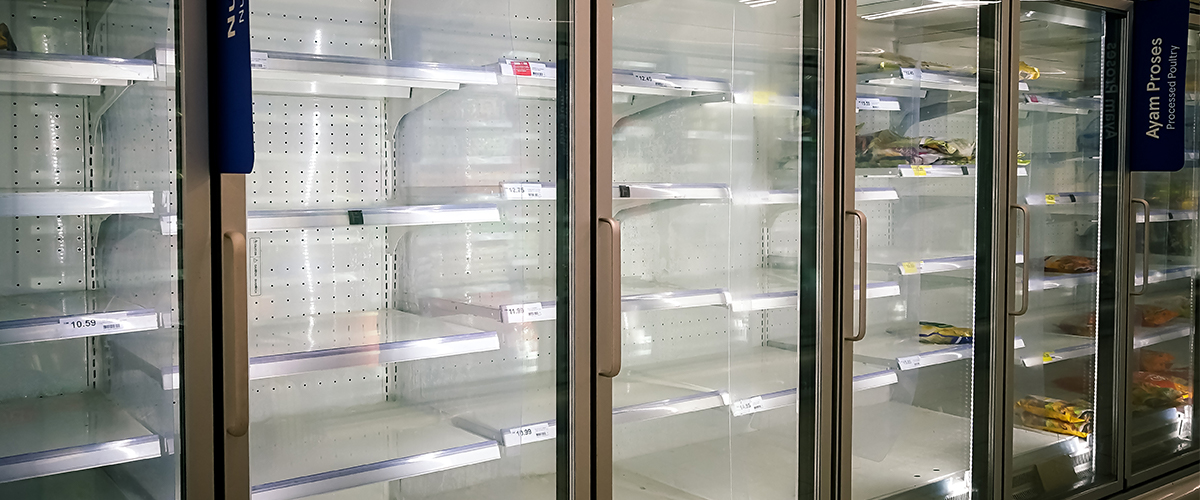The New Way To Grow Food
With rampant urbanization, agricultural land is now in short supply in many parts of the USA. Furthermore, the demand for chemical-free and organic produce that is safely grown and devoid of insecticides and pesticides grows ever larger. For these reasons, hydroponic farming has steadily become more popular all over the country. Hydroponic or vertical farming is a simple process; one uses circulating water instead of soil to grow plants. This farming technique is helpful for a select number of plants in a controlled environment. People have been using discarded roots of common veggies like onions, leeks, and celery, sticking them in a glass of water and watching new roots form for eons. It is essential to understand that this crudest form of hydroponics will not become viable hydroponics companies but could be a great hobby- with this method, you will never grow enough to support more than a rabbit, let alone a family of four. But today, we have the technology to build a viable garden business or vertical farming company inside almost any warehouse space.

How Many Types Of Hydroponic Systems Exist?
There are six basic types of hydroponic systems, and they include
- Aeroponic
- Drip (recovery or non-recovery)
- Ebb and Flow (Flood & Drain)
- N.F.T. (Nutrient Film Technique)
- Water Culture
- Wick
- Vertical hydroponics
There are dozens of minor variations with each of these systems; there will be a need for water solvents with all of them. You must select the hydroponic system and your budget to produce the best growth. The three user-friendly methods for beginners include wick, water culture, and ebb and flow systems.
What Is The General Disadvantages Of Hydroponic Farming?
- Requires a large space
- High setup costs
- Equipment failure
- Steep learning curve
- Significant algae growth because of constant dampness
- Water leaks
- Clogging of pipes
- A continuous need for monitoring
- High utility bills
- High maintenance
What Are The Advantages Of Hydroponic Farming Over Traditional Farming?
- Better growth compared to soil-grown plants
- Quicker growth
- Environmentally friendly
- Less use of chemicals
- Less likely to catch a disease
- No pests

What Are Some Drawbacks Of Hydroponic Farming In A Greenhouse?
- If you reside in the cooler parts of the country, like the Midwest and the North East, where the winters can be frigid, the heating bill for your greenhouse can be very high.
- You need to monitor the greenhouse temperature, humidity, and heat constantly.
- The water bills can also be high.
- A greenhouse may ruin the overall home aesthetics.
Greenhouse Manufacturers
- Grow Span
- Atlas Greenhouse
- T3 Greenhouses
- GGS Structures
- Gothic Arch Greenhouses
- Agri Expo
- Agra Tech
- Stuppy
- Nexus
A Word Of Caution
- You’ll need a dedicated space and the right equipment for your hydroponic garden to survive as a business.
- Hydroponic farming can become a small business venture by growing select plants even in the basement or the yard, but you still need adequate space to produce enough to sell.
- Today, most hydroponic ventures operate from a greenhouse where water is abundant, and a good source of light and heat exists.
- More critically, harvesting the produce must be manageable without much extra help, saving on labor costs.
- In general, insecticides and pesticides are used very sparingly in hydroponic farming. The produce is generally healthier than what is grown on a traditional agriculture farm.
Hydroponic Growers Business Plan
Anytime you want to start a business, you’ll need to create a business plan to gain more insight into your project. The plan should contain the following:
- Should I have an indoor or outdoor hydroponic farm?
- Should I use a greenhouse?
- What crops will I grow?
- What equipment will I need?
- What are the startup costs?
- Where will I sell my crop?
- What are the negatives of hydroponic farming?
- Is hydroponic farming profitable?
- Do I need a permit to operate a hydroponic farm?
There are some handy services available online
Some business plan templates that you should consider include:
Small Business Administration, SBA
Do I Need A Permit and License To Operate A Hydroponic Farm?
Yes, when you sell food products, you will need several licenses and permits. You will need to go to the local chamber of commerce and the Department of Food and Agriculture to determine what required permits. Also, you will need to do the following:
- Register your business
- Obtain an EIN
- Register for state and federal taxes

USDA Website
Five Steps To Obtaining Organic Certification
You may be required to obtain an Agriculture Dealers License

Check out these few companies that can assist you in getting your LLC started.
Here are a few government links you might want to visit
IRS Website
This site by the IRS is a must-see when beginning your LLC
Here are a few legal services available online if you want to talk to a lawyer

Do I Need Insurance For My Hydroponic Business?
Anytime you sell food products to the public, you need liability insurance. For example, you can be sued if a customer develops an infection after eating your lettuce or berries. Liability insurance will protect you and your assets.
Here is a list of some standard insurance companies
- Biberk
- Three Insurance (Berkshire Hathaway Company)
- Next Insurance
- Thimble
- Geico
- Insureon
- Mercury Insurance
- Allstate
- Chubb
- CNA
- Farmers Insurance
- Huckleberry
- State Farm
- Hiscox
- Nationwide
- The Hartford
- Travelers-Business Insurance
- Liberty Mutual
- Progressive Commercial
Some of the best places to get small business insurance
Is Hydroponic Farming Profitable?
It all depends on the type of crop you grow, the market, and your farm’s size. You may break even if you have a small indoor farm or a farm in your backyard. Profit margins are small because of the high overhead. The only way you can make a profit is by selling high volume.
In general, hydroponic farming is more expensive than traditional agriculture, and grocery stores will only buy crops from you if pricing is comparable to the big chain stores. On the other hand, those looking for fresh organic food will be more than happy to pay a premium for your produce.
How Will I Price My Crops?
The price of your product will depend significantly on demand. You will need to speak to several people in the industry, including grocery stores, to determine what they pay for their fresh crop supplies. When first starting out, keep the prices on the low side to establish yourself and your brand. Once you find enough reliable customers, you can gradually raise the prices. Remember, customers are not loyal to any store; they go where the lowest prices are.
What Are Startup Costs For a Hydroponic Farm?
The costs to operate a hydroponic farm depend on the following:
- Size of the farm
- Type of crops
- Use of greenhouse
- Utility bills
The most significant expense is the cost of the greenhouse. The price depends on the size and can vary from $5,000 to $35,000. If you are good with your hands, you can build your own greenhouse for less than $5,000. But this will also depend on the type of material you use. Another option is to buy a greenhouse kit and put it up yourself. These kits usually vary in price from $2,000-$5,000; you will still need to connect the electricity and plumbing.
Here are some hydroponic equipment wholesalers
Some Financial Tools That You Might Consider
Budgeting Tools
Accounting Software
Expense Tracking
Payroll Management
More In-Depth Reviews Here At The Barcode
Tax Preparation
Inventory Tracking
Billing And Invoicing

Who Can Start A Hydroponic Farm Business?
Any dedicated person can start a hydroponic farm. The training process is brief, but it does require some labor. For beginners interested in indoor farming, hydroponics is the ideal way to get started. You can begin hydroponic farming in the backyard or even in a basement as long as you have the right equipment and tools.
My Farm Banking
Here are a few of the standard business banking options available online
- US Bank
- Kabbage
- North One
- Bank Novo
- Bank Of America
- Chase Bank
- Capital One
- Wells Fargo
- Customers Bank
- Mercury
My Farmers Market
Even before you grow crops, you should identify your market. Crops usually do not last more than 1-2 weeks, so you will want to try to sell them quickly. Your buyers may include grocery stores, individual homes, restaurants, hotels, and other wholesalers. To make your hydroponic business known, you will need to do the following:
- Create a website
- Distribute flyers
- Leave your business card with hotels, restaurants, and local grocery stores
- Contact wholesalers
Some of the common domain registrars include:
Here is a list of some options for building a regular website.
Here is a list of drag-and-drop page builders for WordPress.
- Beaver Builder
- Elementor
- Divi
- Hubspot
- Themify Builder
- Visual Composer
- Seedprod
- Thrive Architect
- Site Origin
What Crops Can I Grow With Hydroponic Farming?
- Tomatoes
- Cucumbers
- Peppers
- Lettuce
- Berries
- Watercress
- Celery
- Raddish
What Crops Cannot Be Grown Using Hydroponics?
- Garlic
- Carrots
- Turnips
- Rutabaga
- Onions
These crops need soil for growth.

Nutrients Required For A Hydroponic Farm
It is essential to read labels when buying nutrients for your hydroponic farm. The following minerals are crucial:
- Calcium
- Iron
- Manganese
- Magnesium
- Nitrogen
- Phosphorus
- Potassium
- Sulfur
Besides, hydroponic crops require different fertilizers compared to soil-grown crops. These nutrients are available in dry, inorganic, organic formulas, and liquid. You can adjust the mineral content to suit the plant’s growth.
Startup Plants
- If you want to get started on a smaller scale, you should grow crops with a fast turnover, like green leafy veggies and herbs. These plants are easy to grow, need common nutrients, and have a relatively long shelf life. Plus, you can readily sell these plants to residential homes or retail grocery stores.
- Select plants that have similar nutrient requirements so that you can grow them together
- When starting, you only want to produce a few plant species but in higher quantities. As soon as your business becomes popular, you can then focus on developing the fruits and vegetables your customers prefer

Light
Irrespective of the size of your hydroponic farm, you will need adequate light for growth. Plants need at least 4-8 hours of sunlight to grow and reproduce. If you reside in an area where the days are short during winter, you will need to build a lighting system. The type of light will depend on the kind of plants you are growing.

Temperature
Temperature monitoring is essential for growing plants in a greenhouse or indoors. Too much heat and high temperatures can cause the plants to wilt. Therefore, you must install a ventilation system or have fans and exhaust valves to control the environment. In colder climates, you will need to use a portable heater.
The humidity of your grow space should be between 40-60%. High humidity levels lead to the growth of fungus and mildew.
Seed Germination
Before starting your hydroponic farm, you must buy seeds and allow them to germinate before planting. Seeds are relatively inexpensive; another option is to buy already germinated plants, but they are often more expensive than seeds. Plus, you will need to learn how to germinate seeds.
Growing Medium
With hydroponic farming, you will need some form of growing medium, such as:
- Coco coir
- Rockwool.
- Expanded clay pellets or pebbles
- Phenolic foam
- Grave
- Sand
- Perlite
- Sawdust
Water Quality
The quality of water for hydroponic agriculture is essential. It would help if you got the water quality evaluated for pH and hardness. You should avoid hard water because of the high content of minerals, which can damage plants. Also, the pH should be slightly acidic, between 5.7-6.3.
Conclusion
Hydroponic farming is not difficult, and most people can learn the techniques required. If you start small, do not expect financial miracles overnight. This business takes time to grow, and you need to grow crops with great demand. Once you grasp the skills required in this industry, you can diversify and grow flowers and indoor plants with a considerable market. Finally, start small so you can bear any financial losses and mishaps.










